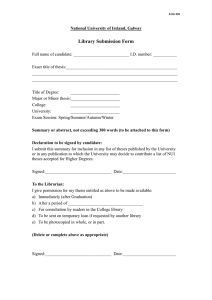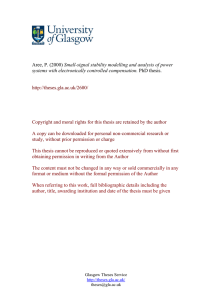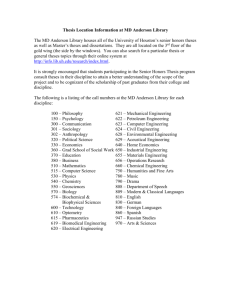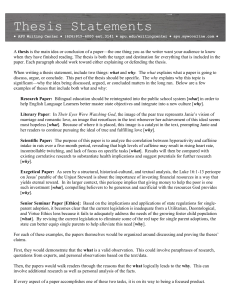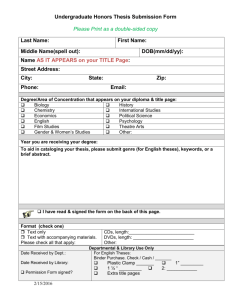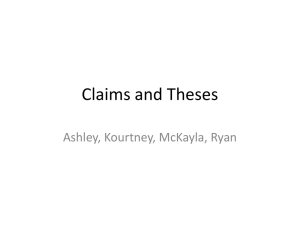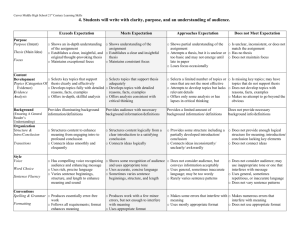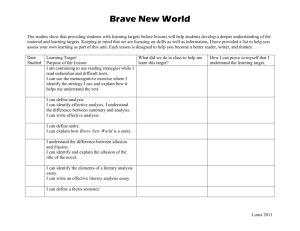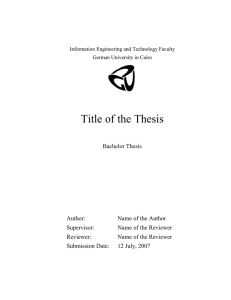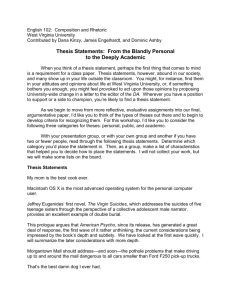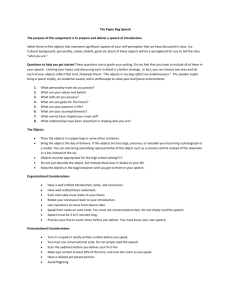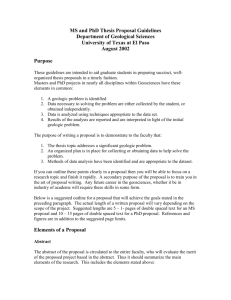Book Review Outline
advertisement
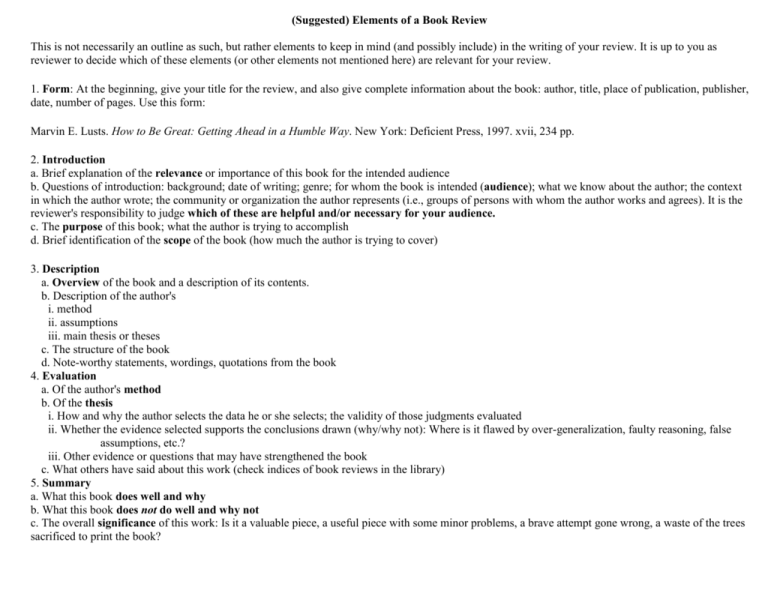
(Suggested) Elements of a Book Review This is not necessarily an outline as such, but rather elements to keep in mind (and possibly include) in the writing of your review. It is up to you as reviewer to decide which of these elements (or other elements not mentioned here) are relevant for your review. 1. Form: At the beginning, give your title for the review, and also give complete information about the book: author, title, place of publication, publisher, date, number of pages. Use this form: Marvin E. Lusts. How to Be Great: Getting Ahead in a Humble Way. New York: Deficient Press, 1997. xvii, 234 pp. 2. Introduction a. Brief explanation of the relevance or importance of this book for the intended audience b. Questions of introduction: background; date of writing; genre; for whom the book is intended (audience); what we know about the author; the context in which the author wrote; the community or organization the author represents (i.e., groups of persons with whom the author works and agrees). It is the reviewer's responsibility to judge which of these are helpful and/or necessary for your audience. c. The purpose of this book; what the author is trying to accomplish d. Brief identification of the scope of the book (how much the author is trying to cover) 3. Description a. Overview of the book and a description of its contents. b. Description of the author's i. method ii. assumptions iii. main thesis or theses c. The structure of the book d. Note-worthy statements, wordings, quotations from the book 4. Evaluation a. Of the author's method b. Of the thesis i. How and why the author selects the data he or she selects; the validity of those judgments evaluated ii. Whether the evidence selected supports the conclusions drawn (why/why not): Where is it flawed by over-generalization, faulty reasoning, false assumptions, etc.? iii. Other evidence or questions that may have strengthened the book c. What others have said about this work (check indices of book reviews in the library) 5. Summary a. What this book does well and why b. What this book does not do well and why not c. The overall significance of this work: Is it a valuable piece, a useful piece with some minor problems, a brave attempt gone wrong, a waste of the trees sacrificed to print the book? Summary of Elements of an Effective Book Review 1. Include important information about the book at the very beginning. 2. Introduce your audience to vital information about the book early in the review. 3. Describe the book’s contents – methods, assumptions, main thesis or theses, structure, and key statements or quotes. 4. Evaluate the author’s method, thesis – purpose of data selected, validity of judgments expressed, relationship between evidence and conclusion (does the evidence logically support the conclusion?). What other specific evidence or information would have made this book stronger? What have other scholars commented on this book? (Are they right or wrong? Why?) 5. Summarize what specific things the book does well and explain why. What does the book not do well? Explain why. Is the book a valuable piece, useful with some minor problems, a brave attempt gone wring, or a waist of time for readers? Explain why. Key Terms Summary: to state or express in a brief form the most important elements of something. Evaluate: to judge or determine the significance, worth, or quality; to assess. Synthesize: to by combining parts or elements to form a complete idea Before you start writing, consider… Who is your audience? Is there a specific format they may expect? Can you organize your information in a way that will make a familiar reading pattern for them? Is there a type of language they may expect? What will they want to get from the final product? Are there specific sections of the final product they may pay particular attention to over others? What is your topic? What does your audience already know about your topic? What may your audience need for you to explain about certain parts of your topic? (terms, jargon, abbreviations…) How may this topic affect them? What is your purpose for writing this? Is it informative writing? Is it persuasive writing? Is it descriptive writing?... What qualities in your writing are necessary to meet that purpose effectively? What voice are you using? This is usually dictated by audience. What are the social rules for the language you will be utilizing? Clarity is key.
